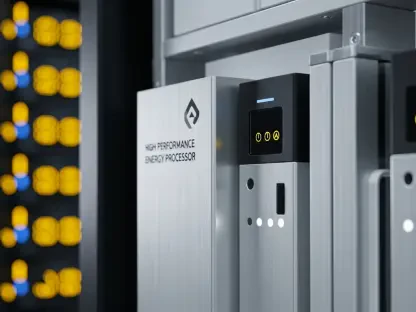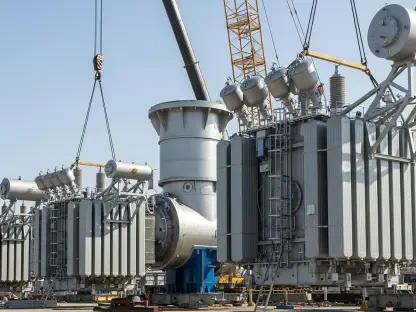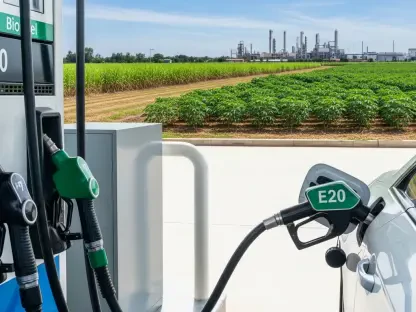Christopher Hailstone has extensive experience with energy management, renewable energy, and electricity delivery. He is also a Utilities expert and provides valuable insights on grid reliability and security. Today, we’ll be discussing the Young Energy Consumers Task Force and the significant role that youth play in the energy transition.
Could you tell us about the Young Energy Consumers Task Force and its main goals?
The Young Energy Consumers Task Force is a project spearheaded by the European Youth Energy Network (EYEN) to enhance the visibility of young energy consumers in EU policies. Its primary goal is to conduct thorough research and build a knowledge database on the experiences and challenges faced by young energy consumers. Additionally, the task force aims to produce evidence-based materials to advocate for more inclusive energy policies and propose tools and methods to activate youth involvement in the energy transition.
How does the European Youth Energy Network (EYEN) contribute to the energy transition?
EYEN contributes to the energy transition by acting as a platform for collaboration and advocacy for youth in the energy sector. It supports young people’s involvement through initiatives like the Young Energy Consumers Task Force and actively participates in policy events to ensure youth perspectives are considered in energy policies. By highlighting youth-led initiatives and conducting research, EYEN helps shape a more inclusive and effective energy transition.
Why is youth engagement critical for a just and effective energy transition?
Youth engagement is vital because young people are not only future energy consumers but also present-day stakeholders who can drive change. Their active participation ensures that the energy transition is more equitable and effective. Young people bring fresh perspectives, innovative solutions, and a strong commitment to tackling climate change, making their involvement indispensable for a holistic approach to the energy transition.
What are some of the unique challenges young people face in accessing affordable and sustainable energy?
Young people face several challenges, including financial constraints and having limited control over their living conditions, especially when renting. Many young consumers earn modest incomes and live in housing that often lacks energy efficiency measures. Structural issues like the landlord-tenant dilemma also restrict their ability to benefit from energy upgrades, as they cannot enforce such improvements in rental properties.
Why are young people often financially constrained in the context of the energy transition?
Young people are often financially constrained due to modest incomes, the burden of student loans, and the high costs associated with setting up independent living arrangements. These financial limitations make it difficult for them to invest in energy efficiency measures or join energy communities, which typically require initial capital outlays that are out of reach for many youths.
How does the current policy landscape in the EU and most Member States overlook young energy consumers?
The current policy landscape often overlooks young energy consumers by not officially recognizing them as a vulnerable consumer group, despite their disproportionate exposure to energy poverty. Policy measures like financial support mechanisms or targeted subsidies are generally not tailored to address the specific needs and challenges faced by young people, leading to their exclusion from many energy transition initiatives.
Can you explain the landlord-tenant dilemma and how it impacts young people’s ability to benefit from energy efficiency improvements?
The landlord-tenant dilemma refers to the issue where tenants, who would benefit from energy efficiency improvements, have no control over making such upgrades in their rented homes. Conversely, landlords have limited incentives to invest in energy efficiency, as the benefits of reduced energy costs accrue to the tenants. This situation creates a significant barrier for young renters to access and benefit from sustainable energy solutions.
What are some specific examples of youth-led or youth-inclusive initiatives in Europe that support the energy transition?
There are several noteworthy initiatives, such as the Electra Energy Cooperative in Greece that supports energy communities and sees high youth participation. In Poland, the CoopTech Hub provides regulatory and business support for energy cooperatives, though it faces challenges due to restrictive national policies. Just a Change in Portugal is another example, mobilizing thousands of young volunteers annually to renovate homes for people living in energy poverty.
How has the Electra Energy Cooperative in Greece engaged young people in their energy communities?
The Electra Energy Cooperative in Greece engages young people by providing legal and technical assistance to support the formation and operation of energy communities. While not exclusively targeting youth, the cooperative has seen high participation from young people due to their interest in addressing climate change. However, financial barriers remain a challenge, as joining requires significant initial investments.
What challenges does the CoopTech Hub in Poland face in involving young people due to restrictive national policies?
The CoopTech Hub faces significant challenges due to restrictive national policies that limit the scope and operation of energy cooperatives. These policies constrain cooperatives to serve only their own members, making it difficult for young people to participate fully. Additionally, the lack of financial support further restricts their involvement in energy community initiatives.
How does Just a Change in Portugal mobilize young volunteers to improve energy efficiency in residential buildings?
Just a Change mobilizes around 2,000 young volunteers annually to engage in housing renovations aimed at improving energy efficiency for those living in energy poverty. This initiative not only raises awareness about energy poverty but also provides hands-on solutions and strengthens community resilience. Through direct involvement, young people gain experience and contribute significantly to tackling energy poverty.
What policy recommendations does the Young Energy Consumers Task Force propose to support young energy consumers?
The task force proposes several recommendations, including recognizing youth as a vulnerable consumer group in energy policies, expanding financial support mechanisms like targeted subsidies and grants, ensuring youth representation in decision-making at all levels of government, promoting inclusive energy communities, and enhancing education and outreach efforts to equip young people with the necessary skills for the energy transition.
Why is it important to recognize youth as a vulnerable consumer group in energy policies?
Recognizing youth as a vulnerable consumer group is important because it acknowledges their unique challenges, such as financial constraints and limited control over their living conditions. This recognition would prompt tailored policy interventions that address these specific barriers, enabling young people to participate more effectively in the energy transition and benefit from supportive measures.
How can financial support mechanisms be expanded to better include young renters and energy community memberships?
Financial support mechanisms can be expanded by implementing targeted subsidies, grants for young renters, and preferential loans that lower the financial barriers for joining energy communities. These measures would make it easier for young people to invest in energy efficiency improvements and participate in clean energy initiatives, ensuring their inclusion in the energy transition.
What role should youth play in decision-making at local, national, and EU levels regarding energy policies?
Youth should have an active role in decision-making processes at all levels to ensure their perspectives and needs are incorporated into energy policies. This involvement can be facilitated through youth advisory boards, representation in policy forums, and direct engagement in the development of policies. Their input is crucial for creating inclusive and effective energy transition strategies.
How can inclusive energy communities be promoted to support youth engagement?
Promoting inclusive energy communities involves removing financial and regulatory barriers and providing educational resources to young people. Support mechanisms such as grants, subsidies, and financial incentives can encourage youth participation. Additionally, fostering cooperative models and ensuring that youth voices are heard in community decisions can enhance their engagement and contribution.
What kind of education and outreach efforts are needed to equip young people with the skills for participating in the energy transition?
Education and outreach efforts should include workshops, training programs, and awareness campaigns that focus on energy literacy, renewable energy technologies, and the importance of energy efficiency. Providing practical experiences, like internships and volunteer opportunities in energy projects, can further equip young people with the skills and knowledge needed to actively participate in the energy transition.
What steps can the European Commission take to ensure youth are included in the energy transition?
The European Commission can ensure youth inclusion by setting clear mandates for youth representation in policy discussions, funding youth-led energy projects, and integrating the needs of young energy consumers into broader energy policy frameworks. Additionally, creating platforms for youth engagement and facilitating partnerships between youth organizations and energy stakeholders can drive more inclusive and effective energy transition efforts.
How does the feeling of not being understood and not being included lead to social backlashes in the energy transition?
When young people feel misunderstood and excluded from the energy transition process, it can lead to a lack of trust and engagement, potentially causing social backlashes. This disengagement may result in resistance to new policies and initiatives, reducing their effectiveness. Ensuring that youth are actively involved and their perspectives valued helps build a sense of ownership and commitment to the energy transition.
Can you share some insights from the research conducted by the Young Energy Consumers Task Force on youth experiences and challenges in the energy sector?
The research by the Young Energy Consumers Task Force has highlighted several challenges faced by young people, including financial constraints, lack of control over energy efficiency in rental properties, and insufficient recognition in policies. Despite these barriers, the research also showcases the potential of youth-led initiatives and the positive impact of targeted support. The findings underscore the need for inclusive policies that address these challenges and leverage the enthusiasm and innovation that young people bring to the energy sector.
Do you have any advice for our readers?
My advice is to recognize the critical role that young people play in the energy transition and actively support their engagement. Whether through policy advocacy, participating in local energy projects, or simply raising awareness about the challenges young energy consumers face, every effort counts. By working together, we can ensure a just and effective energy transition that benefits everyone.









